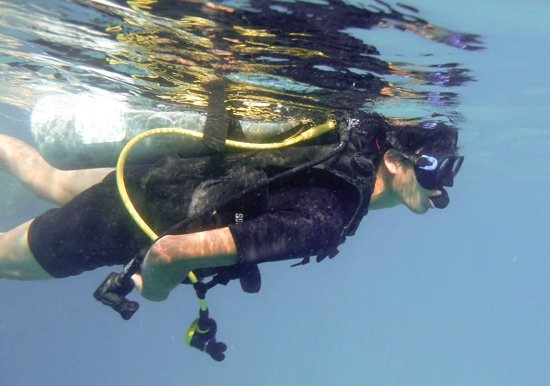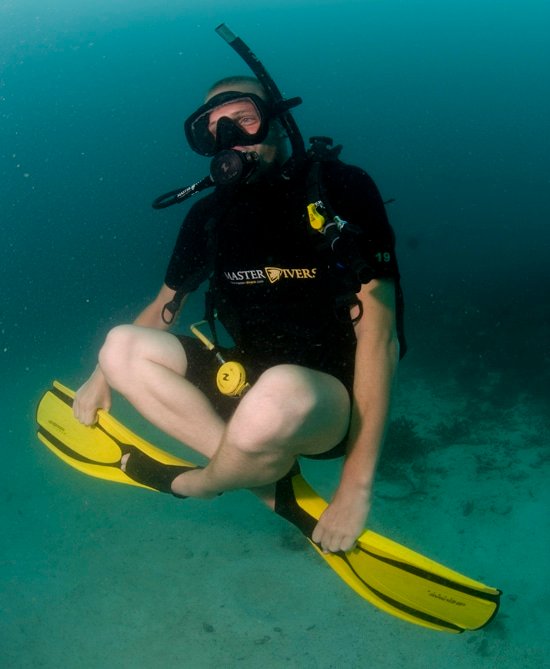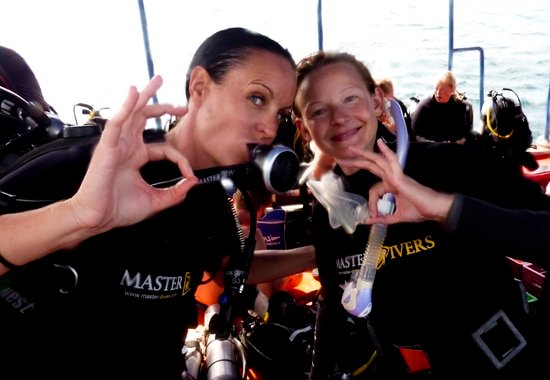O.K so you have run the gauntlet of choosing the correct dive centre. You have decided whether you want to take the SSI or PADI course. So what should you expect next?
Firstly you will be asked to complete a medical questionnaire.If you have any of the conditions listed on the form this doesn’t necessarily mean that you can’t dive but you will have to get medical clearance before you can. If you have asthma or any circulatory or respiratory conditions you will be better getting a dive medical before you leave home. There are various other liability forms to complete too. Paperwork done, then onto the fun stuff!

Most open water courses on Ko Tao run for 3 and half days starting after lunch on the first day with a dive centre and course orientation. Here the dive centre facilities and general operation should be explained to you. The course schedule should be explained and outlined too.
Next you will progress to some basic theory development. The course theory is taught through the use of videos and a book plus review sessions with your instructor and the practical application of the concepts that you learn. The PADI course is split into 5 sections whereas the SSI course is split into 6 sections. This initial session will involve learning the first concepts you will need to understand to become a diver. The next three days will be split between further theory development and water work. Your theory will build and be overlaid during these sessions and as you apply them they should consolidate.
Before you jump into the water for the first time you should have been fitted for your equipment and be comfortable with both the size and quality. You will be shown how to put your kit together and how to check it all works and dismantle it too. You should repeat this so that you are comfortable and practiced with all the steps. Everyone is nervous when approaching their first time underwater so don’t worry, this is quite normal. You will either be in very shallow water or a swimming pool, either is acceptable. In my opinion shallow water is better as you don’t have chlorine to worry about, you get used to salt water straight away and you will see some reef life too. During this session you will learn the skills and techniques you will need to master. You will learn essential every dive skills such as how to clear your mask of water and how to control your position in the water. You will also be taught emergency skills too although it’s unlikely that you will need them, you need to know, just in case.
Over the next few days you will make two dives on each day. The first two will be to a depth no deeper than 12m and the final two to a maximum of 18m. During these dives you will not only learn how to swim correctly with the optimum position but how to control your depth. You will also be asked to demonstrate the skills you learnt during the first session too.

While there is no practical exam, your skills will be assessed at each point. You will get feedback and development every time you practice skills and go diving so the next time is not only easier for you but more perfected. By the end of the course you should achieve mastery of each technique, but as I said this is a gradual process built up throughout the course. Theory wise, whether you take PADI or SSI, there is an exam which takes the form of a 50-question multiple choice test. Don’t worry about this now; you’ll know it all by then — you will have not only seen a video, read a book, answered questions, reviewed with your instructor and practised the concepts. No problem! In the unlikely event that you miss the pass mark, your instructor will simply review the concepts that you have misunderstood and you will be given another exam.
Diving is a quick learning curve and you’ll be hooked! Most are surprised at the amount that they have learnt and mastered. Most fall in love with the ocean and diving. So if you are coming here with the plan to learn to dive, make sure your schedule is flexible so that you can stay and do some more diving or even your advanced course. You won’t be disappointed!
This article was written for and first published on Travelfish.org. It is reproduced here with kind permission !
